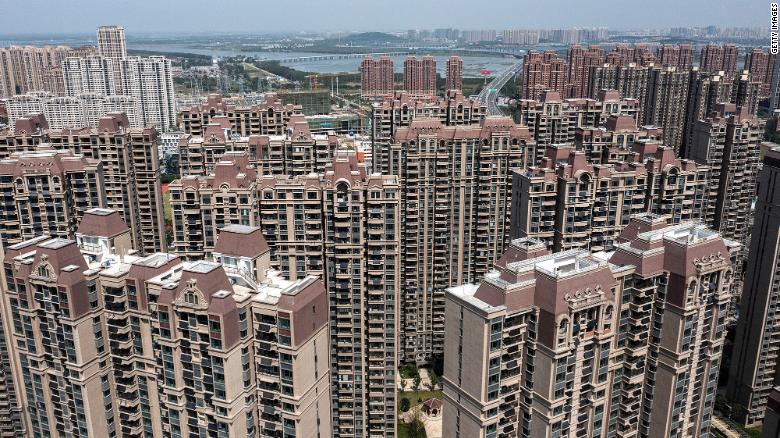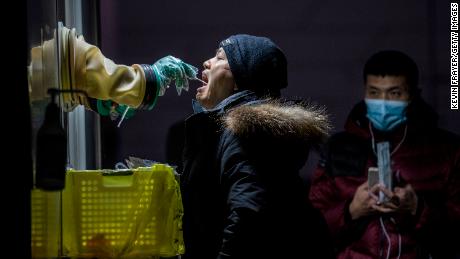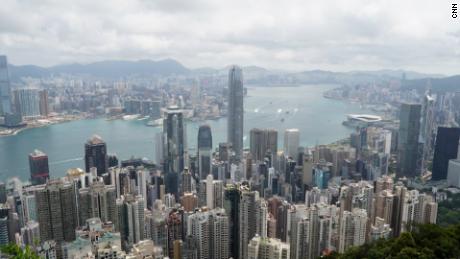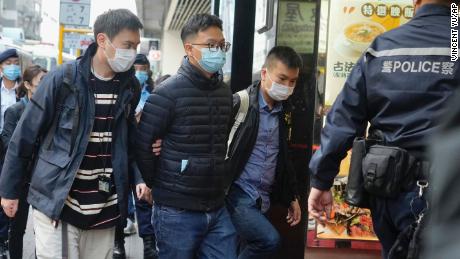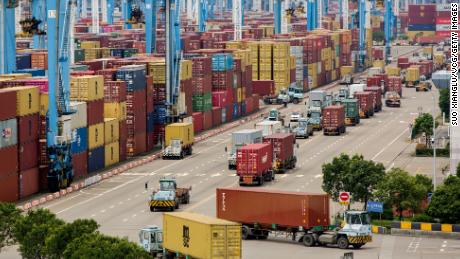Hong Kong (CNN Business)China's economy is still struggling with real estate woes and fallout from sporadic Covid-19 lockdowns. Throw the global spread of the Omicron variant into the mix and it could be looking at a sharp slowdown next year.
Government data released Wednesday showed trouble spots for the world's second largest economy in November. Residential housing prices fell for a third consecutive month, a sign that an ongoing property crisis continues to deepen. Retail sales also struggled, suggesting that coronavirus outbreaks and the government's "zero-Covid" approach of locking down areas where the virus flares up are taking their toll on the economy.
Analysts say that these problems aren't going away, as new outbreaks force companies to close factories in key manufacturing regions.
"A new Covid outbreak in Zhejiang is again triggering local restrictions and factory shutdowns, while troubles in the property sector are likely to hold back property construction for some time," analysts from Capital Economics wrote in a Wednesday note.
Government efforts to ease policies and help the economy "will only cushion the resulting slowdown," they added.
After emerging from 2020 as the only major economy to record growth, China this year has been dealing with a lot of threats to continued expansion. An energy shortage hobbled industrial output for much of this year as the country struggled to balance its need for electricity with efforts to tackle the climate crisis.
China's top leaders have already expressed concerns about the prospects for growth. At a key policy meeting last week, they acknowledged that the economy faces "triple pressures: contracting demand, supply shocks and weakening expectations."
The world's second biggest economy is still expected to grow by 7.8% in 2021, according to Macquarie Capital. But Larry Hu, chief China economist for Macquarie, warned that the "broad downtrend is set to continue into the new year."
While an official GDP target of more than 6% in 2021 was "low hanging fruit," he added, "defending 5% for next year is a hard task."
Concerns about growth
The data released Wednesday by the National Bureau of Statistics offered little comfort.
Along with the flagging real estate and retail figures, investment in fixed assets such as plant and equipment also lost steam. The metric expanded 5.2% through the first 11 months of the year, compared with 6.1% in the first 10 months. The slump was mainly attributed to slower spending in real estate and infrastructure.
Unemployment also ticked up slightly, to 5%.
There was one bright spot. Industrial output in November rose 3.8% from a year ago, a slight increase from October.
"The good news is that the production side of the economy shows some signs of stabilization, thanks to the ease of power shortage and the resilient external demand," Hu wrote.
But the release of the data coincided with troubling news from Zhejiang province, one of its biggest manufacturing and export hubs. Many factories in the province have suspended operations as local authorities have tightened curbs on movement to stop an outbreak of more than 200 cases from getting worse.
'Zero-Covid' and new outbreaks
There also remain questions about the effectiveness of China's "zero-Covid" approach, which involves aggressively locking down neighborhoods, cities and entire regions in response to just one or two cases. Prior shutdowns in major economic hubs have snarled shipping ports and stunted global supply chains.
The extent to which the outbreak in Zhejiang will hurt manufacturing is not yet clear. But the city of Ningbo, home to one of the world's largest container ports, has tightened entry, raising concerns about disruptions.
"Further supply chain disruption is a significant possibility," analysts at Capital Economics wrote in a Wednesday research note.
Concerns about the Omicron variant of the coronavirus also loom large. This week, China reported two cases of the variant, one in the northern port city of Tianjin and another in southern Guangdong province.
At a press conference in Beijing on Wednesday, authorities alluded to the global spread of the variant, surging commodity prices, and broken global supply chains, calling the "international environment" something that has become "more complex and severe."
And the recent coronavirus outbreaks in China suggest "rolling restrictions and consumer caution are here to stay for the foreseeable future," the Capital Economics analysts wrote.
Property slowdown
And longstanding problems real estate continue. Evergrande defaulted on its debt last week, leading Beijing to intervene in an attempt to prevent a disorderly collapse that could wreak havoc on the economy and trigger wider risks for homeowners and the financial system.
A slowdown in the property structure crept up as the country tried to rein in debt risks and curb an overly leveraged sector. A regulatory crackdown that started last year, intended to tame excessive borrowing in real estate, has sapped liquidity for the sector and pushed some weak players to the brink of collapse.
Along with Evergrande's recent default woes, other developers are in trouble, too.
Shares of Shanghai-based Shimao Group have plummeted in Hong Kong this week after a planned sale of assets triggered concerns about the company's financial health.
Fu Linghui, a spokesman for the National Bureau of Statistics, called the real estate market "generally" stable. But he admitted that some cities are facing "increased" downward pressure in real estate due to loss of population and economic difficulties.
"Debt risks are rising for some real estate companies that have previously relied on high leverage to expand blindly," he said.
The government has indicated that it is willing to step in and provide limited help. The People's Bank of China recently announced it would pump $188 billion of liquidity to the banking system, a move widely interpreted as an attempt to counter the real estate slump.
And analysts expect Beijing to race ahead with more aggressive policy support.
"Over the past year, we saw a race between economic recovery and policy tightening," Hu from Macquarie Group wrote. "It turns out that tightening killed recovery. Next year, we will see a new race between economic slowdown and policy loosening."
"While the growth pressure is mounting, one doesn't want to underestimate Beijing's determination in achieving stability," he added.
